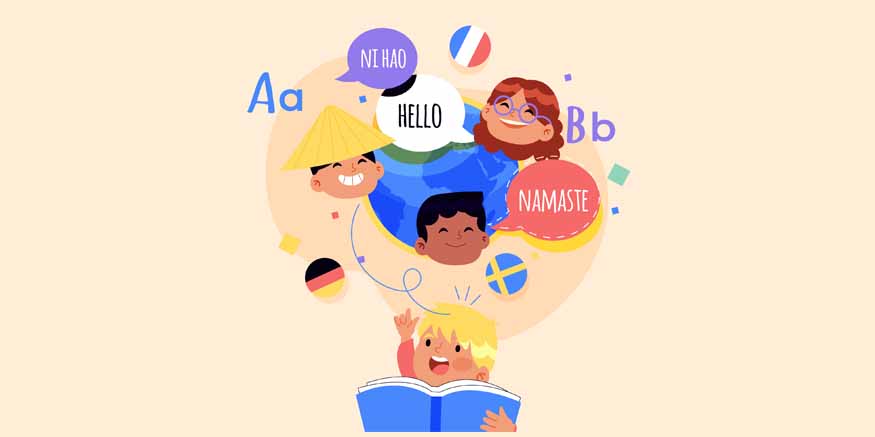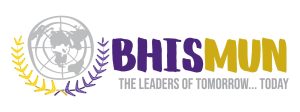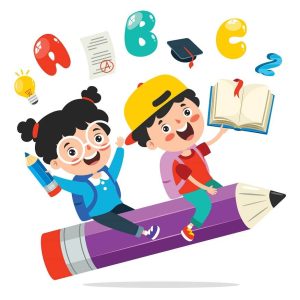The Importance of Learning a Second Language

In today’s connected world, to learn a second language is more than just a skill—it is a doorway to new opportunities, experiences, and ways of thinking. People all around the globe see how language helps them communicate clearly, understand others better, and grow both personally and professionally. From traveling to different countries, exploring new cultures, advancing in education, or boosting career growth, language learning opens many doors and creates chances to connect with the world in meaningful ways.
Why Does Learning a Second Language Matter?
This helps people to connect with others and understand the world better. It also improves thinking skills and makes learning new things easier.
Language Connects People- Language is the foundation of communication. It allows people to share ideas, express feelings, and understand each other.
More Than Just Words- When someone starts learning a second language, they do more than memorize vocabulary and grammar. They explore new ways of thinking and expressing themselves.
Understanding Cultures- Learning another language helps people appreciate other cultures. It teaches empathy and respect for different traditions, values, and histories.
Sharpening the Mind- Language learning improves mental flexibility. It encourages creative thinking, problem-solving, and critical reasoning skills.
Become a Global Citizen
The world today functions as one large community. People work with international teams, travel widely, and share ideas online. This is where global citizenship becomes essential. Being a global citizen means understanding and respecting people from different backgrounds. Learning a second language helps individuals connect with others, navigate cultural differences, and build stronger relationships. It encourages openness, tolerance, and awareness of global issues—qualities that define true global citizenship.
Benefits of Bilingualism in Daily Life
The benefits of bilingualism go beyond communication. They affect daily life, education, and career opportunities.
- Better Job Prospects: Employers value professionals who can work with clients or partners worldwide. Bilingual employees manage international projects effectively and adapt to diverse markets.
- Cultural Awareness: Language learning introduces learners to books, music, films, and traditions in their original form. It enhances understanding and appreciation of different cultures.
- Social Confidence: Speaking multiple languages helps people communicate comfortably, form new friendships, and adapt to unfamiliar environments.
- Travel Advantages: Travellers who know the local language enjoy authentic experiences, interact with locals easily, and explore beyond tourist spots.
How Language Learning Boosts the Brain?
One of the most remarkable aspects of language learning is the effect on the brain. Research shows that bilingual people gain many cognitive benefits.
- Enhanced Memory: Learning vocabulary, grammar, and pronunciation strengthens memory.
- Better Focus: Switching between languages improves concentration and reduces distractions.
- Problem-Solving Skills: Bilinguals think flexibly, make decisions carefully, and solve problems more effectively.
- Delayed Cognitive Decline: Studies suggest bilingual people experience slower aging of the brain and lower risk of memory-related issues.
These cognitive benefits show that learning languages is not just for speaking—it is a mental workout that improves brain performance.
Explore Culture through Language
- Every language reflects the values, traditions, history, and way of life of its speakers.
- Learning a second language allows learners to experience different cultures directly and personally, making cultural exploration meaningful and engaging.
- Examples of cultural insights through language learning:
- French: Introduces famous art, unique cuisine, literature, and historical landmarks.
- Spanish: Opens doors to Latin American traditions, music, festivals, and rich storytelling.
- Japanese: Reveals unique social customs, etiquette, traditional practices, and modern culture.
- Language learning encourages learners to see life from different perspectives, promoting curiosity and respect for diverse ways of living.
- These experiences help develop cultural sensitivity, awareness, and a deeper understanding of the world.
By connecting with people through their language, learners strengthen their role as responsible and active global citizens, ready to participate in a diverse and interconnected world.
How Can Knowing Multiple Languages Boost Your Career?
- Multilingual Employee Advantage- They can work with international teams, understand diverse markets, and adapt to different cultural settings, making them valuable to global companies.
- Language Improves Communication: It allows professionals to speak directly with clients or partners in their language, reducing misunderstandings and building stronger relationships.
- Bilingualism and Career Growth: Being multilingual opens more job opportunities, increases chances for promotions, and shows employers that a person is adaptable and culturally aware.
- Benefits beyond Work: Yes, they enhance empathy, social skills, and global awareness, which are useful in both personal and professional life.
Technology and Language Learning
Language learning is transformed by modern technology, which makes it enjoyable, engaging, and available to all. In comparison to traditional ways, digital tools improve practice, communication, and fluency development quicker.
- Easy Access- Technology makes language learning simple and convenient. Apps, online courses, and virtual tutors let people study at their own pace, anytime and anywhere.
- Interactive Practice- Tools like interactive lessons, pronunciation exercises, and language games help learners practice effectively and stay engaged.
- Real Conversations- Many platforms connect learners with native speakers for live conversations, improving fluency and understanding of cultural nuances.
- Engaging and Efficient- Digital tools make learning a second language enjoyable and efficient, helping learners build skills faster than traditional methods.
Personal Growth and Confidence
Studying a second language strengthens personal skills and encourages a sense of achievement with each milestone. It also empowers individuals to face new challenges confidently and enjoy opportunities in travel, work, and learning.
- Developing Patience and Discipline– Learning a second language encourages patience, consistent effort, and self-discipline.
- Achieving Small Goals– Understanding phrases, forming sentences, or holding conversations builds motivation and confidence.
- Independence and Self-Assurance– Bilingual individuals feel more independent and confident in travel, study, or work abroad.
- Beyond Career Benefits– The benefits of bilingualism enhance self-esteem, personal satisfaction, and overall growth.
Building Stronger Relationships
- Language serves as a powerful bridge, connecting people from different cultures, countries, and communities.
- Taking the time to learn another person’s language demonstrates respect, genuine care, and interest in their traditions, values, and way of life.
- Language learning helps develop trust, strengthen friendships, and create meaningful connections that can last a lifetime.
- It enables individuals to communicate clearly and confidently with family members, co-workers, neighbours, or communities who speak different languages.
- Engaging with people in their own language fosters understanding, patience, and empathy, helping individuals appreciate different perspectives and ways of thinking.
- These interactions encourage collaboration, mutual support, and stronger social bonds in both personal and professional settings.
- By connecting with others through language, people develop essential qualities of global citizenship, including respect for diversity, cultural awareness, and a sense of shared responsibility in a global society.
Overcoming Challenges in Language Learning
- Effort and Patience: Learning a second language takes consistent effort, patience, and persistence.
- Common Challenges: Learners often face difficulties with pronunciation, grammar, and remembering vocabulary.
- Consistent Practice: Regular practice is essential for making progress and achieving fluency.
- Practical Methods: Joining language clubs, watching movies, listening to music, and reading books in the target language help improve skills naturally.
- Building Confidence: Overcoming challenges boosts self-confidence and motivation to continue learning.
- Cognitive and Personal Growth: Each challenge faced in language learning leads to meaningful cognitive benefits and a sense of personal achievement.
Conclusion
In today’s connected world, learning a second language is a life-changing skill that sharpens the mind, broadens cultural understanding, and builds bridges between people. The benefits of bilingualism extend to personal life, education, and career while encouraging global citizenship. It helps individuals gain mental flexibility, empathy, and confidence, and each new word opens the door to stronger relationships, a broader perspective, and a more welcoming world. Learning another language is not just about communication—it is about personal growth and connecting with others.
At Billabong High International School (BHIS), knows the importance of learning new languages as part of Students overall development. Connect with us for more information on our curriculum.













